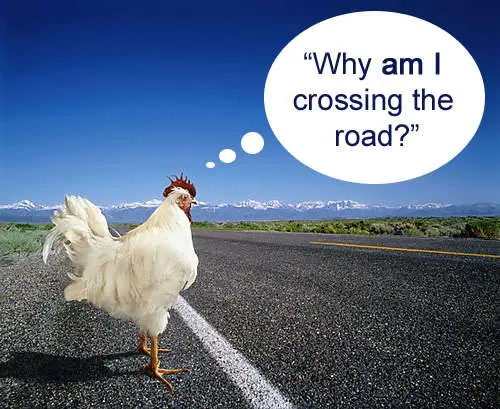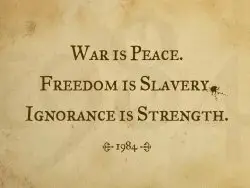What is philosophy?


A wise ass owl, by Katariina Agnes Fagering
Granted, this question is somewhat untimely for a blog that exists for four years. And yet, keeping up with tradition, it is very timely to ask this after you have dealt with the subject for a decade. So what is philosophy? In a very straightforward way, it could be said to be one of the following:
- The use of reason in understanding such things as the nature of the real world and existence, the use and limits of knowledge, and the principles of moral judgment
- A group of theories and ideas related to the understanding of a particular subject
- A particular system of beliefs, values, and principles
- The way that someone thinks about life and deals with it
Or rather, those are the definitions give to us by Cambridge Dictionary. We can all see how the four definitions provided here are similar – and we can also see how they are different. For instance, ‘the way that someone thinks about life’ could be said to be very similar to ‘the use of reason in understanding such things as existence’ – why not? At the outset, the two definitions are not substantially different, and it takes philosophers to point out the significance of the difference.
This is not to say that philosophy complicates things – or goes deeper into the subject matter; instead, I am only saying that philosophy pauses at what may seem true or even obvious and asks whether that is indeed so. After studying philosophy for so long, one is often reminded of Socrates’ continued questioning of whether what seems to be the case truly is the case. What is the case with philosophy is that it deals with a variety of concepts because as a subject it is widely diverse – where some (including philosophers) see life as synonymous to existence, others would emphasise the differences between the two. So at first, we can say that philosophy is not necessarily complicated or pedantic, but rather a wide enough subject that generates and encourages a wide interest.
This, of course, is but a cursory answer – what is philosophy is ultimately something more than.
What is not philosophy!
While answering what philosophy is may be complicated, it is not as complicated to say what it is not. There are at least four ways in which philosophy is used by non-philosophers:
- Philosophy is not a ‘way of life’. Certainly, philosophers have often endorsed a way of life, or a way of life could be deduced from their body of work. This is not the same, however, as defining philosophy as a way of life.
- There is no such thing as a personal philosophy. This would be a rather dubious definition if we understand philosophy as pursuit of wisdom. After all, there is little wisdom in personal philosophy, if any all; and there is even less pursuit of wisdom in personal philosophy.
- Philosophy is not a theory – though again, philosophers have proposed many theories (many incorrect ones too).
- But one that mostly rubs me the wrong way is defining philosophy is a belief; as if pursuing knowledge and wisdom and understanding can be reduced to such a rubble as a mere belief.
These kinds of answers have entered popular culture through misunderstanding, and even worse, through marketing companies aiming to gain some kind of ‘spiritual’ clientele.
What is philosophy?
And so, we return, what then is philosophy?
When we read about philosophy, it is common to refer to its origins in Ancient Greece and particularly to the etymology. As a term it was likely coined by Plato and literally means ‘love of wisdom’: φιλοσοφία (philosophia). But then again, what is love? and what is wisdom? If we keep to such a generic definition – and I am not necessarily against a generic definition – we end up with calling every pursuit of wisdom ‘philosophy’.
Take a rather curious example: Isaac Newton wrote a book back in 1687 with the title Philosophiæ Naturalis Principia Mathematica – natural philosophy! It took two more philosophers of the early 20th century to look at this title and drop philosophy altogether: namely, Russell & Whitehead’s Principia Mathematica.
One more thing, then, can be said about philosophy. It is a subject, like many others, that reinvents itself. Quite uniquely though, it is a subject that is self-reflexive. It does not merely reinvent itself simply in order to remain relevant. For some reason or other, philosophy wants to ‘break with tradition’. More often than not, philosophers turn their back to all philosophy done before them – some do not even want to be associated with the subject any longer. Their main concern becomes that all preceding philosophy missed something fundamentally important to the subject. In the example above, Russell thought that philosophy as it was done in the past was too imprecise and required a new model. Or, another example, Marx thought that philosophy could not answer the socio-economic ills of the society, summarised in the 11th thesis on Feuerbach:
The philosophers have only interpreted the world, in various ways; the point is to change it.
And so we have two: philosophy is a wide subject and it is self-reflexive.
Let us add three more:
- Philosophy is critical – that is, it requires a critical evaluation of assumptions held in a society, including the meaning we give to individual words and the associated beliefs, as well as a critical attitude on the theoretical foundations that are built through the use of these words and beliefs.
- Philosophy is logical – that is, it is a subject that aims for consistency and coherence in the use of language and words, aiming to remove contradictions in the way we speak about different subjects and the way we relate to the world around us.
- And, somewhat more contentious, philosophy is empirical or practical – that is, there is always an actual empirical issue or event that drives philosophical reflection – the term ‘armchair philosophy’ is a misnomer.
Confessions…
Now that we have given philosophy five characteristics, it is time for yet another ‘tradition’. Truth is, I don’t know what philosophy is…
Confessions are yet another philosophical thing to do – Saint Augustine went as far as to write a book with that title and influenced half of the Middle Ages to do the same. And we could say that there is some form of Socratic confession here too – the one wise enough to know that he does not know (pretentious, I know, but if you are curious, here is a rather nasty article about Socrates I have written a while back).
And yet, I think it to be a good start to say that to do philosophy, or be philosophical, one has to keep to five standards that were just mentioned:
- Aim for a wider understanding of the subject
- Maintain critical evaluation of the subject
- Stay logical/consistent in the use of language
- Keep an empirical grounding in reflection
- Be self-reflexive
Sign up for Paradox of the Day mailing list and please visit our Patreon support page.







